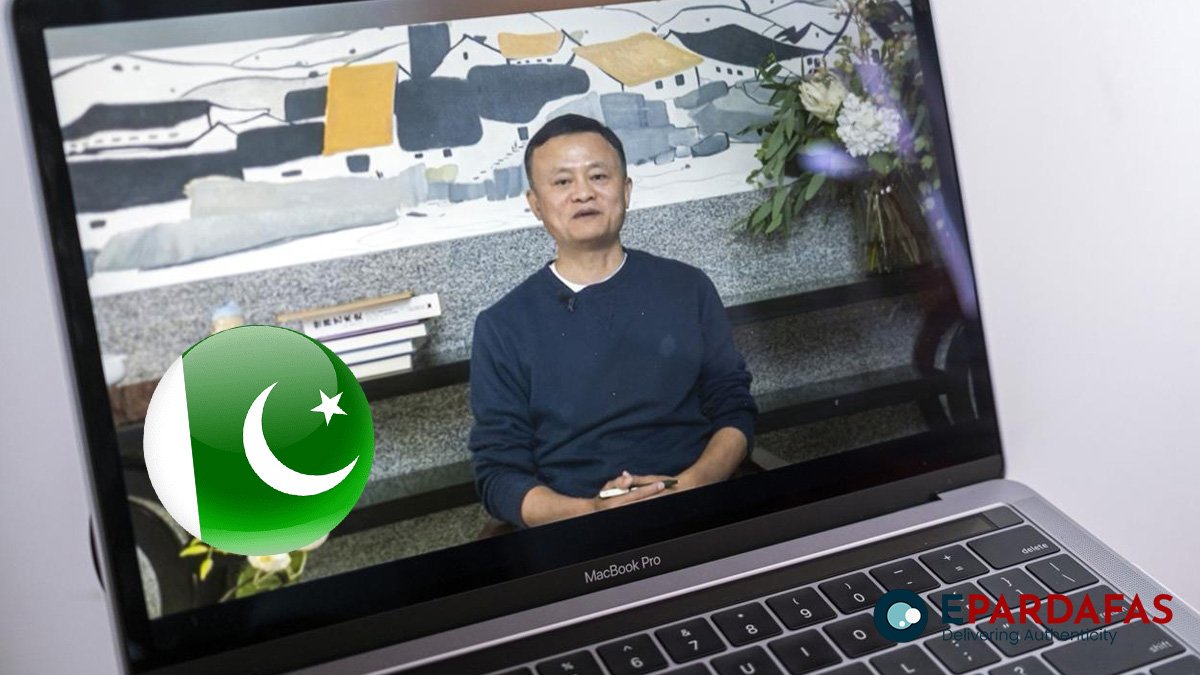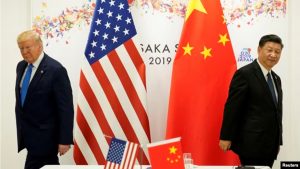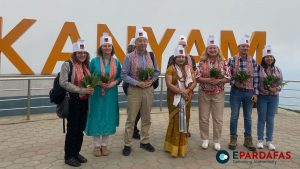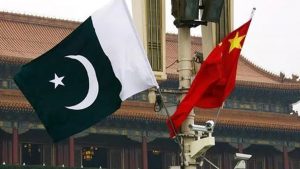
Speculations Surround Jack Ma’s Mysterious Visit to Pakistan
The surprise secret visit of Chinese billionaire and co-founder of Alibaba Group Jack Ma to Pakistan had stirred up many speculations dividing the country’s managers and commoners apart in their views. While, policy makers and business representatives were expected to make a beeline behind the visitor, the social media was abuzz with suspicion that the visit may be the beginning of outright sale of the country’s state assets to Chinese businessmen.
Though Jack Ma kept the visit a low profile by avoiding any visible interactions and choosing to stay at a private location, it was shrouded with secrecy. The accompanying business delegation with Jack Ma added to the scope for speculation. As Islamabad is in dire need of investment and selling its state assets at throw away prices, it was rumoured that the Chinese are looking for the right opportunity to consolidate their business interests in Pakistan.
Although the purpose of Ma’s visit remains undisclosed, former Chairman of the Board of Investment (BOI), Muhammad Azfar Ahsan expressed optimism that the visit would yield positive outcomes for Pakistan. There were also rumours about their visits to trade centres and meetings with influential businessmen and chambers of commerce representatives.
However, surprisingly there was an attempt to downplay the visit of Jack Ma by bolstering the country’s reputation as a tourist destination and avoiding any reference to his business intents and meetings.
Islamabad’s friendly countries have been frustrated by the persisting forex crisis for over a year with no foreseeable end. The UAE and Saudi Arabia have already refused to give cash deposits to Pakistan due to the country’s inability to return earlier loans and instead have asked Pakistan to open its public assets for overseas investment.
Nevertheless, overseas investors showed no interest in buying Pakistani state assets. This was in spite of an ordinance for the emergency sale of state’s assets to foreign companies in July 2022. The ordinance bypasses all legal and regulatory procedures, barring Pak courts from entertaining any petition against the sale of these assets to foreign countries. Now Jack Ma’s visit is viewed with suspicion by the local population as an attempt to plunder their economic assets by China.
FDI inflow, including from China, witnessed drastic reduction in the FY 2022-23. Foreign exchange reserves fell to USD 3.5 billion in June 2023 from USD 8.3 billion in July 2022. During the period, the average monthly value of Pak Rupee also fell to 286 from 217/US$. On the other hand, monthly inflation had risen from 4.35% to 29.4%. Remittances, the major source of forex for Pakistan witnessed a decline of 13.6% during the FY 2022-23, totalling USD 27 billion compared to previous year’s USD 31.3 billion. While Pakistan is facing an overall economic slowdown, the visit of Jack Ma adds up to the secrecy.
Eminent economist Dr. Kaiser Bengali said that “soon we will be employees of Chinese, Saudi, Emirati and other employers as Pakistan will be owned by them. We lost our economic sovereignty”. Poor Pakistanis have been suffering economic misfortune from the very beginning.
China-Pakistan Economic Corridor (CPEC) is one of the examples of it. Pakistan claims that the CPEC project under Belt and Road Initiative (BRI) has created nearly 200,000 direct local jobs, built more than 1,400 kms of highways and roads, and added 8,000 MW of electricity to the national grid, ending years of blackouts caused by power outages. However, in spite of all these investments, Pakistan still suffers from power cuts, slowdown in industrial growth as well as a rising rate of unemployment.
According to some media reports, the unemployment rate in Pakistan has reached 12% recently. In the past 18 years unemployment amongst the age group of 15 to 29 has increased by 60%. More than 23% of educated youth in Karachi alone are unemployed. The number of unemployed youth in the country is almost 60 million with 3 million labour force searching for work. In 2022, 900,000 Pakistanis went abroad in search of jobs. Earlier, the World of Statistics placed Pakistan at the 24th position in its global list in terms of the rate of unemployment.
CPEC failed to live up its hype as Michael Kugelman, Deputy Director of Asia Programme at Washington’s Wilson Centre claims. He said, “there’s been a whole lot of hype about it”.
Islamabad’s claim on coal-fired power plants and hydropower projects undertaken by China are also under attack. China’s coal-fired power plants suffered from a debilitating cash crunch in Pakistan amid foreign exchange shortage. Besides, they are major contributors to the emission of CO2 and smog. There are allegations that while promoting CPEC, Islamabad ignores environmental implications.
Amidst Islamabad’s forex crisis, these power plants have been unable to import coal, and thus, stopping operation, further adding to power cuts. Due to CPEC Pakistan owes more than USD 1.26 billion to Chinese Independent Power Producers.
On the other hand, combinations of Pakistani economic stress and Chinese security concerns have slowed down CPEC’s momentum in recent years. Mistrust with Chinese companies is growing. This is due to the fact that Chinese companies employ men and materials brought from China in their projects, denying employment and business opportunities to the local community. Separate colonies for Chinese workers near the project sites further frustrates the local population.
Some critics point out that military officials are pushing for cooperation with China along with the news that Pakistan is purchasing Chinese-made surveillance cameras to monitor citizens. China’s influence in all walks of life is irking Pakistani Commons. Views critical of China are being kept out of the mainstream Pakistani media. China has been exerting pressure on Pakistan to permit private Chinese security contractors to work at project sites, further angering the locals.
A new study on China’s global influence puts Pakistan at the top of the list. The ‘China Index 2022’ – conducted and published by the China in the World (CITW) network, an initiative of Taiwan-based anti-disinformation group, Doublethink Lab – revealed this while exploring China’s influence in 82 countries. “China has historically had to make a lot of efforts to, not to say infiltrate, to really build its influence across Pakistani society in order to gain Pakistani trust,” said Kugelman Michael.
It is because a growing number of Pakistanis suspect that China is slowly encroaching on their land under the guise of enhancing their economic cooperation in projects including mining and financial investments.














Comments